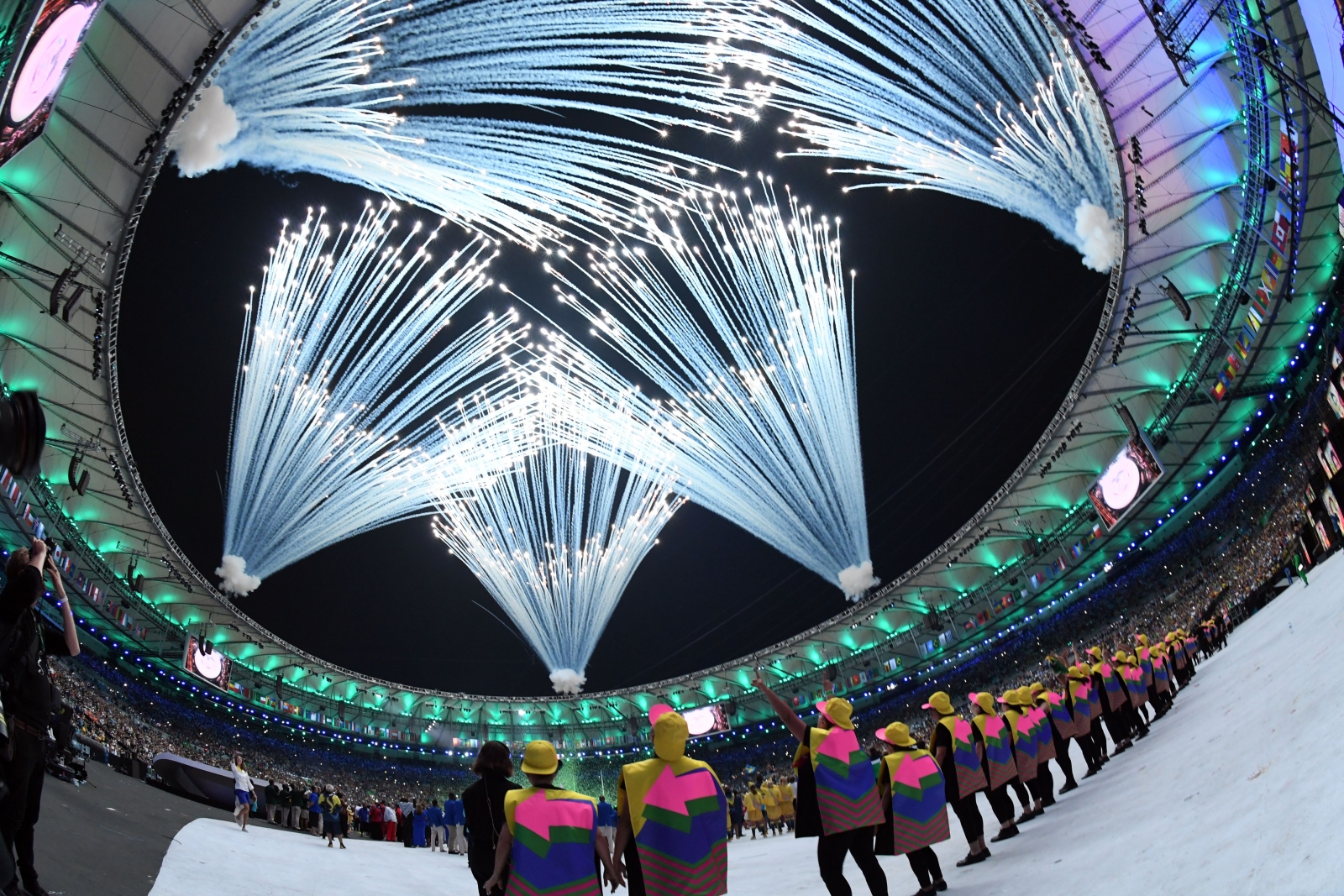 Olympic Rings made of fireworks are seen during the opening ceremony of the Rio 2016 Olympic Games at the Maracana stadium in Rio de Janeiro on August 5, 2016.Jewel Samad/AFP/Getty Images
Olympic Rings made of fireworks are seen during the opening ceremony of the Rio 2016 Olympic Games at the Maracana stadium in Rio de Janeiro on August 5, 2016.Jewel Samad/AFP/Getty ImagesAnnounced on 5 August, The Post will join the growing number of media publications utilizing similar technology to expand their news coverage, produce more stories automatically and free up their reporters to do more in-depth pieces.
The publication will use an in-house tool called Heliograf that was developed by its engineering team to quickly churn out automatic reports on scores, event schedules, medal counts and other data-centric news for the Rio Games. The automated reports will be then included in the company's main Olympics liveblog that will also feature stories written by The Post's sports reporters. These updates will also be shared by the newspaper's Twitter bot, @WPOlympicsbot, its Facebook Messenger bot and be available on Alexa devices as well.
"Automated storytelling has the potential to transform The Post's coverage. More stories, powered by data and machine learning, will lead to a dramatically more personal and customized news experience," Jeremy Gilbert, director of strategic initiatives at The Post, said in a statement.
"The Olympics are the perfect way to prove the potential of this technology. Heliograf will free up Post reporters and editors to add analysis, color from the scene and real insight to stories in ways only they can."
Gilbert also added that the promising software would continue to be developed and tweaked by the Post team to improve its data analysis and story-telling capabilities in time for major news events such as the upcoming US election in November.
It will also be used to automatically "process a combination of different data sources, like crime and real estate numbers, customize stories depending on individual user actions, and help look for anomalies in data to alert journalists to a potential story."
"Launching Heliograf is a natural next step for The Post's use of machine learning," said Sam Han, engineering director of data science at The Post. "The next challenge is to broaden the subjects covered, deepen the kind of analysis possible and identify potential stories for our newsroom."
In July, the Associated Press also announced plans to expand its sports coverage to include Minor League Baseball games by using software from Automated Insights and data from MLB Advanced Media to produce automated stories that its human reporters are not covering.
0 Response to "The Washington Post to use AI technology to cover Rio Olympics and US election"
Post a Comment